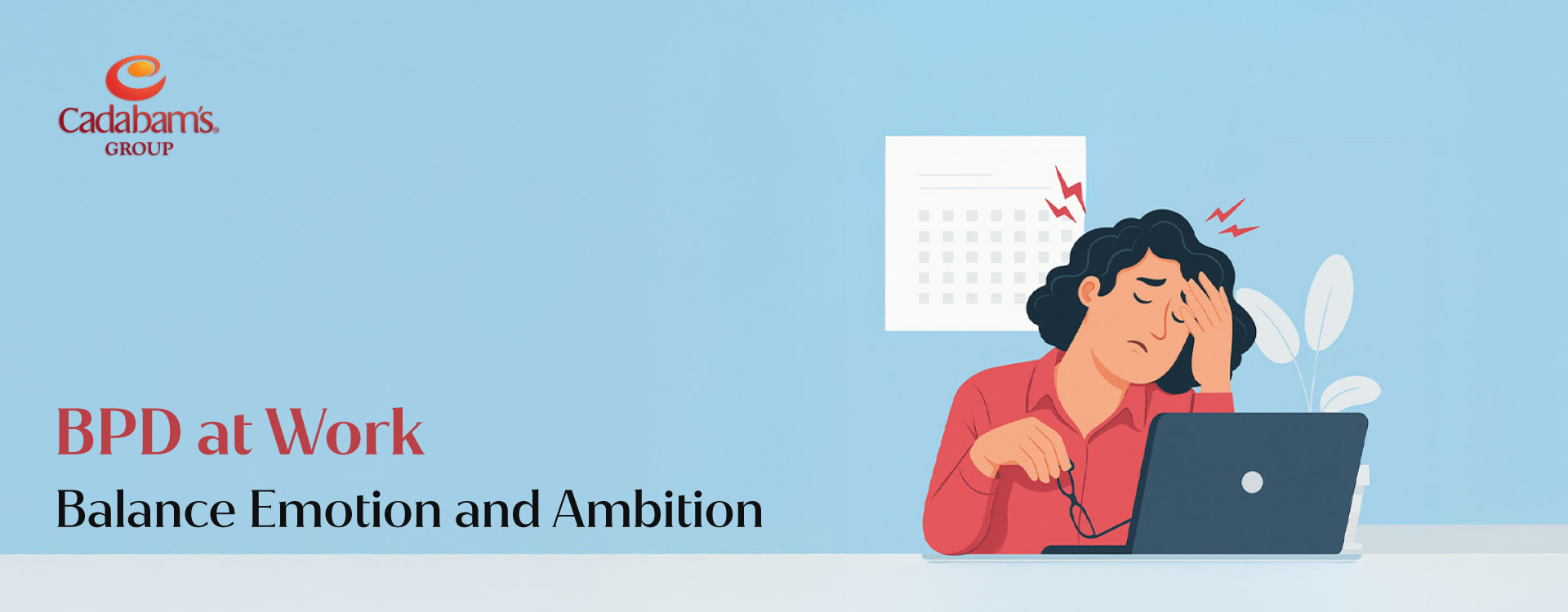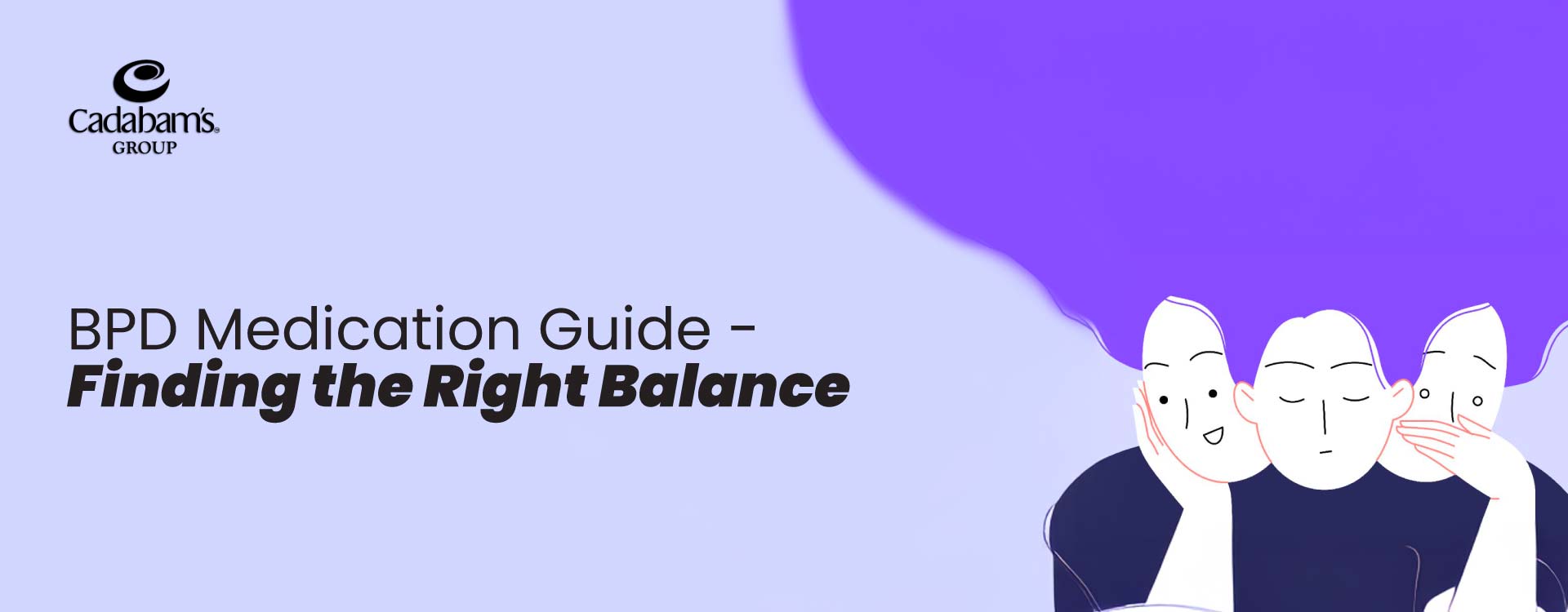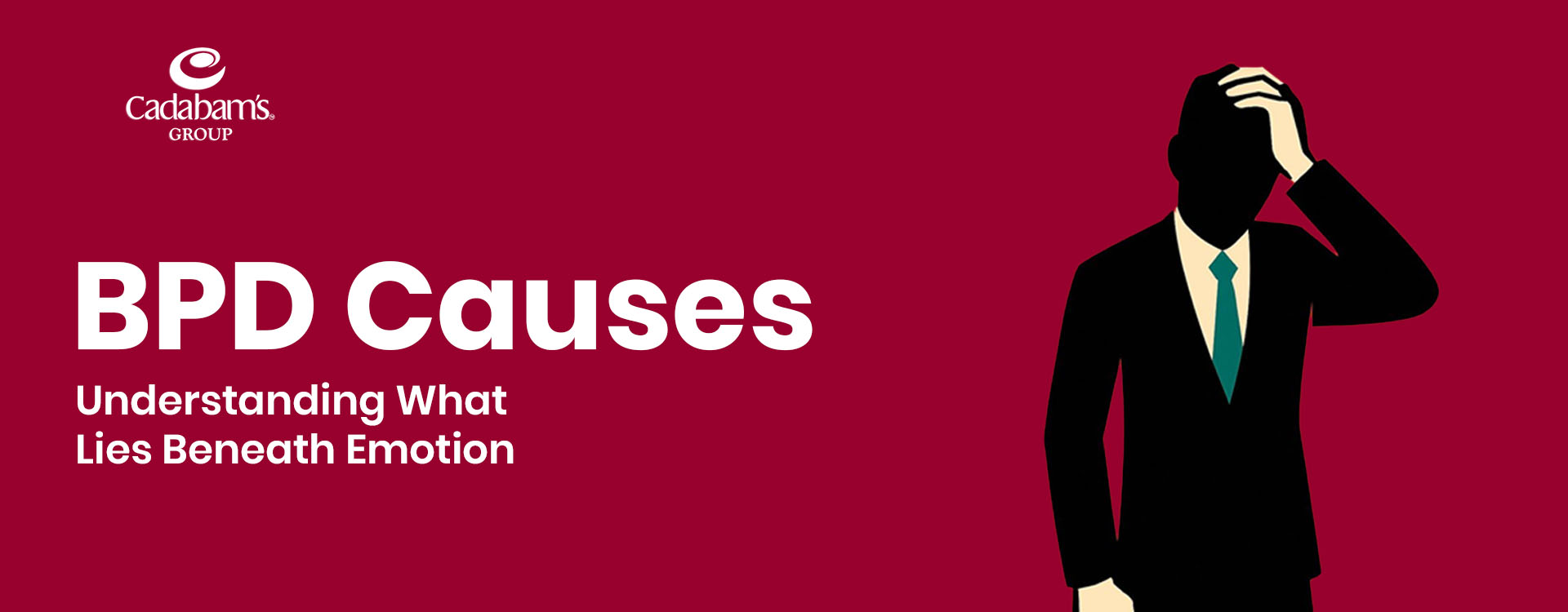Schizophrenia is a serious mental health disorder that causes multiple distressing symptoms. These symptoms can be divided into positive symptoms like hallucinations & delusions, and negative symptoms like emotional flattening. Though the condition is chronic, the disorder can be managed with proper medication and treatment. Schizophrenia can be managed with effective medication and a psychiatrist is a medical professional who can prescribe these medications. A psychiatrist evaluates your symptoms, diagnoses your condition, and prescribes the appropriate medication. They also coordinate with the rest of the treating team to ensure that recovery progresses.
Can be Personality Disorder treated?
Personality Disorders are serious mental health disorders that completely disrupt a person's thought patterns and self-image. The disorder itself cannot be cured completely, but its symptoms can be managed effectively enough for a person to lead a fulfilling and complete life in many cases.

Our Professionals
Why Choose Cadabam's for Personality Disorder?
Cadabams has been India’s leading name in mental health for over thirty years. We combine expertise, experience, and empathy to accelerate recovery in individuals. Our world-class treatment facilities aid in the recovery of the individual and help them feel at home while they battle their mental health disorder.

Decades of Expertise
33+ years of focused mental healthcare, shaped by 1000+ real patient journeys.

Dedicated Care Centres
State of the art mental health centres built for treatment and recovery.

Multidisciplinary Care Team
A coordinated team of psychiatrists, psychologists, counsellors, and rehabilitation specialists supporting your care.

Experience Across Stages
Support from early signs through treatment and recovery.

Structured Care Model
Treatment guided by clear plans that continue beyond diagnosis.

Continuity of Care
Planned follow ups and continued guidance to help maintain progress over time.
Who is a Psychiatrist?
Psychiatry, a division of medicine, that concentrates on identifying, managing, and preventing mental health disorders. Psychiatrists possess expertise in assessing both the physical and psychological components of these disorders, enabling them to offer treatment options for a wide range of conditions like personality disorder.
Among the typical conditions addressed by psychiatrists are mood disorders, substance abuse disorders, neurodevelopmental disorders, and others. In their role as physicians, they are capable of administering diverse medical and psychological assessments to formulate a thorough diagnosis and treatment strategy.
What Are the Qualifications of Psychiatrists for Personality Disorders?
A psychiatrist specializing in personality disorders is a medical professional who has completed both an MBBS and an MD degree.
Their comprehensive training and specialized knowledge enable them to thoroughly evaluate, diagnose, and provide treatment for symptoms associated with personality disorders.
Unlike primary care physicians such as pediatricians or general practitioners, psychiatrists utilize a combination of physiological and psychological assessments to identify the most suitable therapies and medications that promote effective healing.


Our Personality Disorder Center Near You
What Does a Personality Disorders Psychiatrist Do?
When it comes to conditions such as personality disorder, it is typically a psychiatrist who is initially consulted. To identify the symptoms associated with this condition, a psychiatrist can perform various tests, including a physical examination, psychiatric assessment, and mood charting, among others.
Furthermore, psychiatrists specializing in personality disorders may delve deeper into understanding the individual's medical background and family history.
By working together with a multidisciplinary team that may include psychologists, counselors, case workers, nurses, and others, all under the leadership of the psychiatrist, the information gathered is utilized to diagnose and approach the treatment of the condition in a comprehensive manner.
Difference Between a Psychiatrist, Psychologist, Therapist & Counsellor?
A psychiatrist is a physician who specializes in providing mental health care. In their capacity as physicians, they have the authority to prescribe medications for various mental health conditions.
On the other hand, a psychologist is an individual who has completed postgraduate education, such as a Psy.D or Ph.D. They receive training in specific therapeutic techniques and are capable of treating various psychiatric conditions, including personality disorders. They are not authorized to prescribe any form of medication during the treatment process.
Finally, therapists and counselors undergo training to address the daily challenges associated with personality disorders using approaches such as cognitive behavioral therapy and art therapy.
When it comes to managing personality disorders, a multidisciplinary team consisting of these professionals collaborates to assist individuals in coping with symptoms and enhancing their overall well-being.
What Diseases Are Treated by a Psychiatrist?
Psychiatrists, with their specialized training in evaluating, diagnosing, and treating both mental and physical aspects of disorders, commonly address the following conditions:
- Personality disorders: Schizoid personality disorder, narcissistic personality disorder, and antisocial personality disorder can be assessed and treated by a psychiatrist.
- Eating disorders: Bulimia Nervosa, Anorexia Nervosa, Bing eating, and Night-eating syndrome, fall under this umbrella.
- Substance use disorders: Addiction to any substance (alcohol, nicotine, hallucinogens, etc) is treated medically and psychologically by a psychiatrist.
- Psychotic disorders: Schizophrenia, Delusional disorder, and Brief psychotic disorders, are mainly assessed and treated by a psychiatrist.
- Impulse-control disorders: In children, disruptive or defiant behavior symptomatic of Conduct disorder, Oppositional defiant disorder, and more are also treated.
- Mood disorders: One of the most common conditions that include anxiety, depression, bipolar disorder, cyclothymic disorder, etc.
- Neurodevelopmental disorders: These include Global developmental delay, Communication Disorders, and Autism spectrum disorders.
Emergency service
Find nearest mental health center now

Facilities & Amenities
Our Programs
What Things to Expect During an Appointment With a Psychiatrist?
When beginning the journey towards recovery, seeking guidance from a psychiatrist is an essential and initial step. For individuals who are visiting a psychiatrist for the first time, here are some aspects you can anticipate.
The psychiatrist will gather general information, such as age, gender, occupation, and relationship status, as well as specific inquiries about your medical and family history. The doctor will also inquire about your current complaints or concerns to gain a comprehensive understanding of your condition.
To gain a more detailed perspective of your situation, the psychiatrist may recommend specific physiological and psychological tests. Based on the observed symptoms, the psychiatrist may also prescribe medications that can aid in managing and alleviating those symptoms.
When to See a Psychiatrist for Personality Disorders?
In the journey towards recovery from personality disorders, the first step is consulting a psychiatrist. They employ medical and psychological assessments to comprehensively diagnose and treat personality disorders.
With prescribed medications to help individuals manage the symptoms associated with personality disorders, they focus on long-term recovery.
Why Should an Individual Consult a Personality Disorders Psychiatrist?
Personality disorders psychiatrists possess extensive training and expertise that enables them to identify and address a broad spectrum of physiological and psychological symptoms.
Depending on the severity of the condition, they may also recommend appropriate medications to effectively manage the symptoms and enhance overall functioning.
How Often Does Someone Need to Visit a Personality Disorders Psychiatrist?
The frequency of consultations with a psychiatrist is determined by the severity of symptoms and the impact they have on the individual. In cases where the symptoms of personality disorders are severe and the person requires daily support and supervision, a higher number of sessions is usually recommended.
Taking these factors into consideration, the psychiatrist may suggest adjusting the frequency of consultations, either increasing or decreasing them accordingly
Subscribe to our newsletter
Find out about centres, daily updates and more about mental health

Listen to Our Expert Insights on Personality Disorder
Frequently Asked Questions
Psychiatrists are specialized and trained to deliver evidence-based treatment techniques and medications to help the individual manage the symptoms of personality disorders.
However, their goal is not limited to this. Along with symptom management, they aim to improve the quality of life and well-being of their client.
Psychiatrists primarily concentrate on assessing both the physiological and psychological components of a condition to prescribe and oversee medications.
On the other hand, counseling techniques are typically employed by clinical psychologists, therapists, or counselors.
However, this does not mean that psychiatrists are incapable of utilizing counseling strategies to some extent.
Psychiatrists possess the expertise to treat a diverse array of psychiatric conditions. Nevertheless, certain conditions with lower levels of severity may not necessitate immediate or regular psychiatric intervention.
A specific set of physiological and psychological tools are used to assess and diagnose the symptoms of personality disorders. The professional may also use mood charts to determine the frequency of mood fluctuations.
Further, questions on insight/judgment, medical history, educational background, and more may be considered. Finally, determining the condition would also entail understanding the family history in terms of both medical and psychiatric illnesses.
You have the option to schedule an online consultation with our psychiatrists via our website. This video-based session provides the convenience of addressing your concerns from the comfort of your home.
However, for the initial consultation, we suggest considering an in-person session, as this can contribute to establishing a robust professional-client relationship.
The training and expertise that psychiatrists possess can be applied to different subspecialists including:
- Child and Adolescent Psychiatry
- Addiction Psychiatry
- Geriatric Psychiatry
- Forensic Psychiatry
- Reproductive Psychiatry
- Family Psychiatry
- Public and Community Psychiatry
.webp)






-min.webp)



.avif)

-min.webp)

.avif)

.avif)
.webp)
.jpg)

-min.webp)




